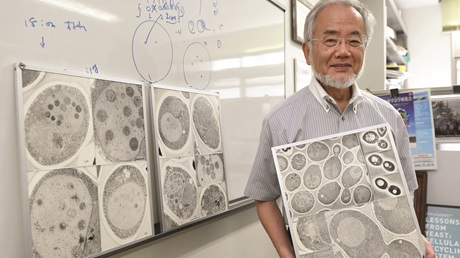The science and spirituality behind the latest Nobel Prize in medicine.

With every patient I treat, I hear myself echo the same sentiment: I know this hurts. I’m sorry. It will be over soon. In the emergency department, healing rarely comes without pain. It may be the wrenching of a joint back into place, the lancing of an abscess, or the administering of antibiotics through the business end of a large needle. But with the exception of the few who decide at the first flash of my scalpel that perhaps they aren’t that sick, most patients understand: The hurt is temporary, and it has a purpose.
They understand it because we see it everywhere: Sacrifice now produces benefits later. Whether the sacrifice is submission to pain, change, or loss, we believe that “suffering produces perseverance; perseverance, character” (Rom. 5:3–4) because the truth of it plays out in every theater of our lives. Whether it is in relationships, education, or the gym, we lose something and experience pain to be better off. So when scientists first peered into a cell and saw it destroying its own proteins and organ-like parts (organelles)—structures that it had invested heavily into building—their first question was, “Where is the benefit of this sacrifice?”
The process of autophagy (literally “self-eating”) is so vital to our survival that it was the focus of the 2016 Nobel Prize in Physiology or Medicine announced in October. Winner Yoshinori Ohsumi described the discovery of this complex process as a surprise. He watched as cells wrapped entire proteins and organelles in a protective membrane—and then shredded them to pieces with enzymes. It was the equivalent of watching a wrecking ball take down a skyscraper, reducing a majestic work of architecture …


